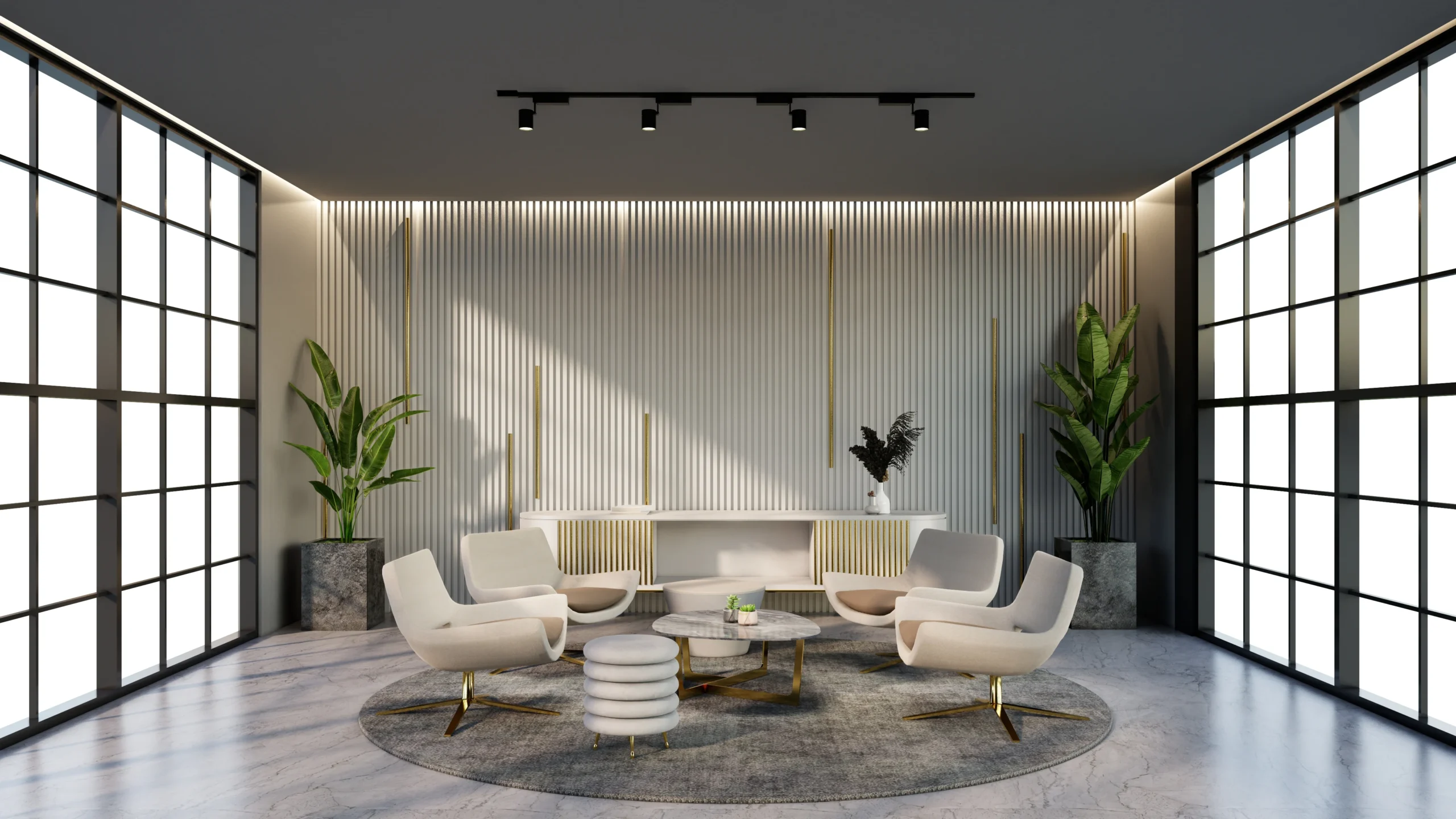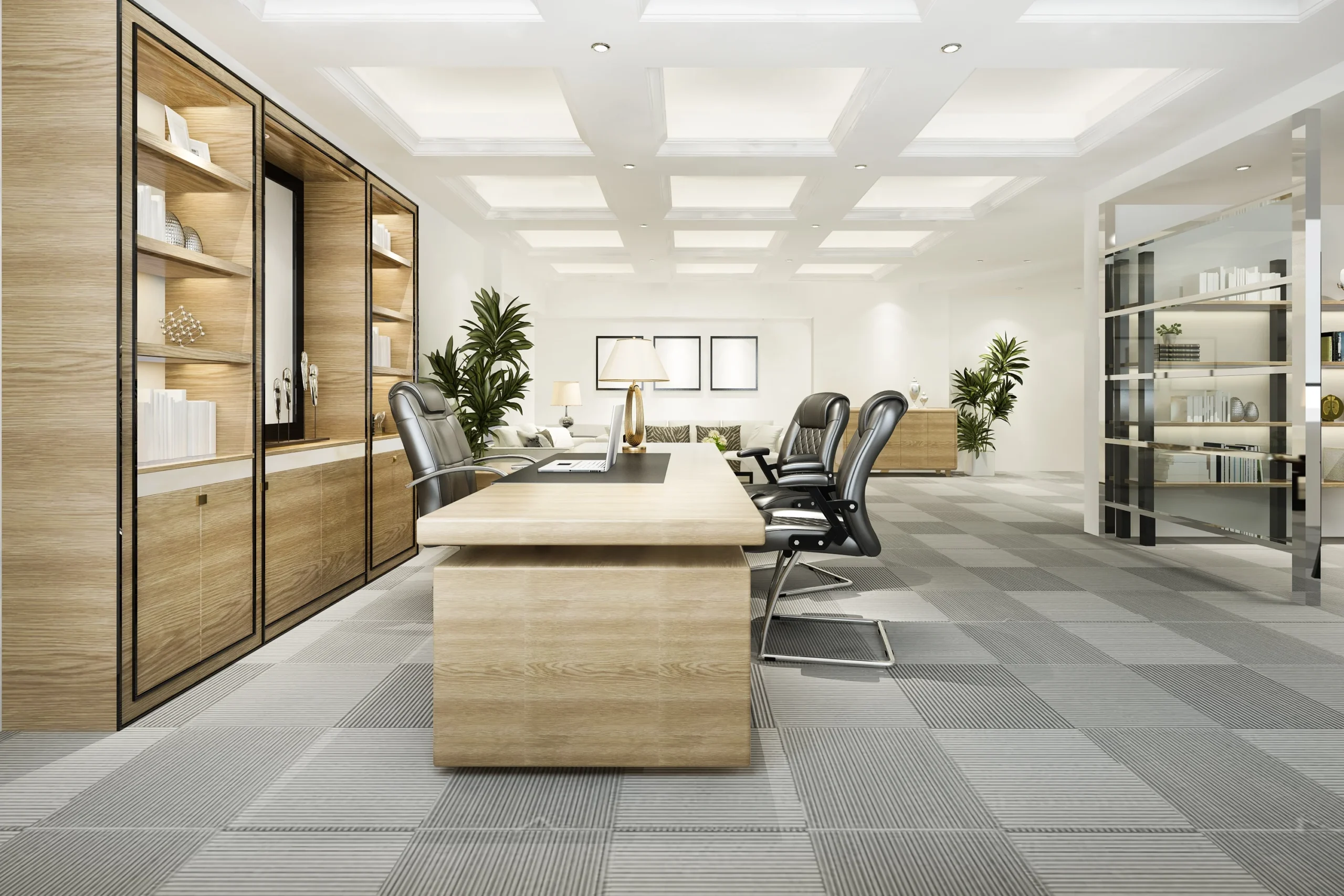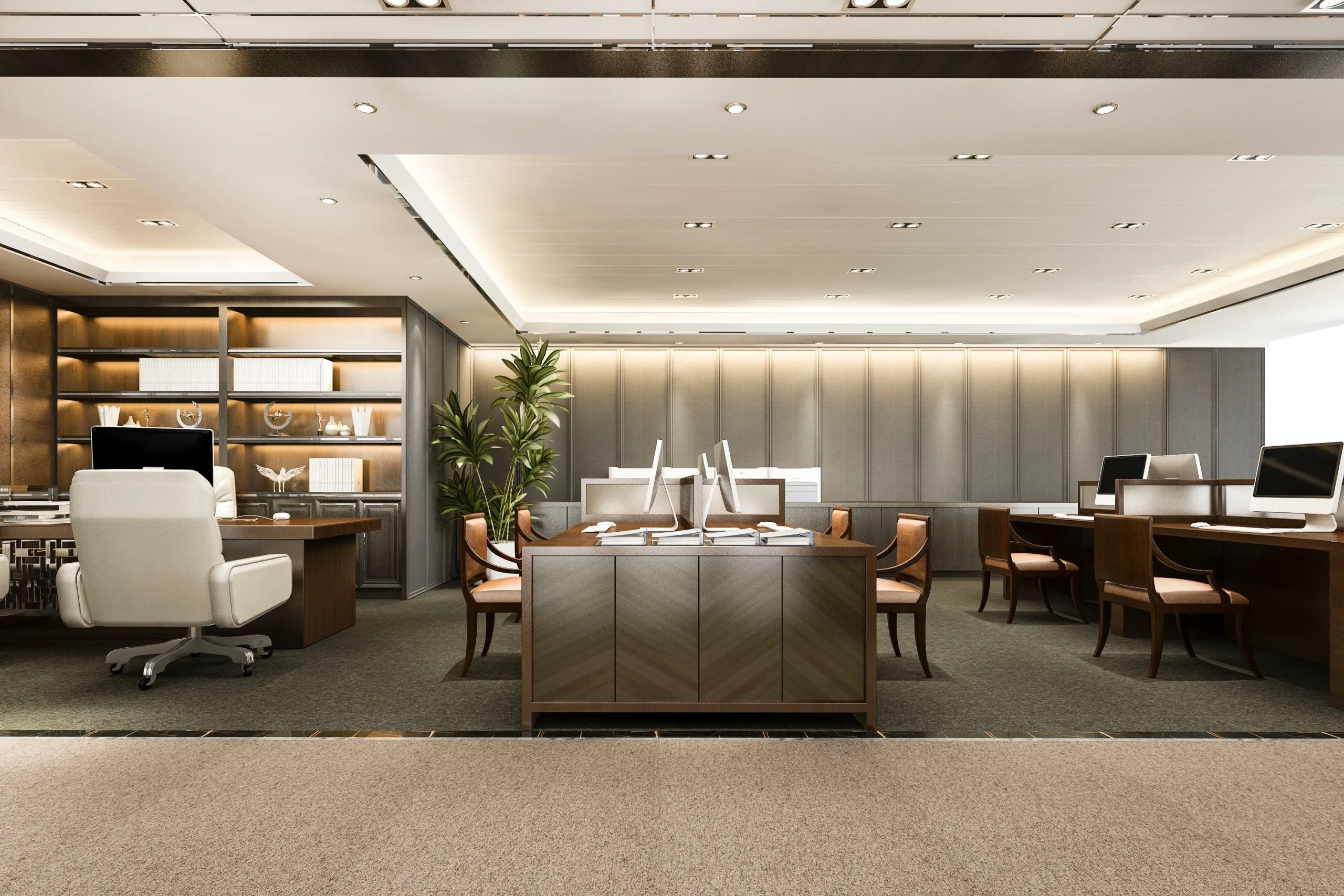Advocates Office Interior Design: How to Create Functional and Trustworthy Spaces
30-04-2025 | 5m read

When it comes to designing office spaces for legal professionals, functionality and professionalism are only part of the equation. For advocates—who handle sensitive cases, meet clients regularly, and often work under high-pressure conditions—an office must also communicate trust, authority, and calm.
That’s where advocates office interior design plays a critical role. It’s not just about good looks; it’s about creating a thoughtful environment that supports the advocate’s role, improves focus, and fosters client confidence. So how can you design impactful office spaces tailored specifically for advocates?

Client confidentiality is at the heart of an advocate’s work. Design the space with high-quality soundproofing materials—acoustic panels, heavy doors, and insulated walls—to ensure meetings remain private and distractions are minimized.
Tip: Use double-glazed glass partitions or smart glass to allow natural light while preserving confidentiality when needed.
The visual impression of an advocate’s office should reflect integrity and professionalism while remaining warm and approachable. Rich wood tones, deep blues, greys, and neutral palettes convey stability and sophistication.
Add curated artwork, certificates, or legal-themed decor to subtly communicate expertise and credibility.

Advocates need organized, clutter-free workstations to manage documents, case files, and research. Include built-in shelves, filing cabinets, and smart storage solutions. Make space for dual monitors, ergonomic chairs, and ample desk space for reading and writing.
Bonus Tip: Consider a separate client consultation area within the office for more personal, less formal interactions.
A modern advocate’s office requires seamless integration of tech tools—secure video conferencing setups, document scanners, digital case management systems, and smart lighting. Hide wires and keep tech infrastructure discreet to maintain a clean, polished look.

The client’s experience matters. The waiting area should be calm and comfortable, with plush seating, warm lighting, and light refreshments. This sets the tone for trust and empathy before they even step into a consultation room.
Don’t Forget: Accessibility for all clients—consider ramps, wider doorways, and easy-to-navigate layouts.
Create flexible spaces that can adapt—small rooms for private discussions, slightly larger ones for team collaboration, and virtual court hearings if needed. These zones help advocates function with agility and precision.

Incorporate subtle branding through color schemes, wall art, or logo etching on glass partitions. This creates a cohesive identity without being overpowering or distracting from the professional environment.
An effective advocates office interior design is not just about aesthetics—it’s a strategic tool to improve client trust, enhance daily productivity, and reflect the stature of the legal profession. When designed with intention, your office becomes more than just a workplace—it becomes a space of confidence, care, and credibility.
Looking to design an impactful legal workspace? Let Humanrise help you create an office tailored to the unique needs of advocates—blending purpose, style, and performance.
Conference rooms are no longer just enclosed boxes with long tables and static screens. In the era of hybrid teams,...
Conference rooms are no longer just enclosed boxes with long tables and static screens. In the era of hybrid teams,...
Conference rooms are no longer just enclosed boxes with long tables and static screens. In the era of hybrid teams,...